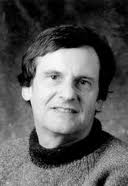| In Memoriam: Alan F. Segal |
![PDF-NOTE: Internet Explorer Users, right click the PDF Icon and choose [save target as] if you are experiencing problems with clicking.](http://rsnonline.org/templates/rsntemplate-smallmasthead/images/pdf_button.png) |
 |
August 2, 1945–February 13, 2011“If I forget thee, O Jerusalem, let my right hand forget” (Psalm 137:5)
Alan was born in Worcester, Massachusetts, on August 2, 1945, into a Reform Jewish family. He completed an undergraduate degree at Amherst College and an MA at Brandeis University. In 1975, he completed a PhD dissertation at Yale University entitled “Two Powers in Heaven.” This was published two years later by Brill as his first book, Two Powers in Heaven: Early Rabbinic Reports about Christianity and Gnosticism. It was this brilliant book that would prefigure the work on the relationships between Judaism and Christianity that Alan would do for the rest of his career. In 1986 he published his next book, Rebecca’s Children: Judaism and Christianity in the Roman Empire (Harvard University Press). This book was revolutionary in that it changed the metaphor of Judaism and Christianity from parent and child to siblings — siblings who sometimes didn’t play well with each other. As Alan wrote on the book’s first page, “Like Jacob and Esau, the twin sons of Isaac and Rebecca, the two religions fought in the womb. Throughout their youth they followed very different paths, quarreling frequently about their father’s blessing. As was the case with Rebecca’s children, the conflict between Judaism and Christianity molded their characters and determined their destinies.” Alan’s important work in this area continued with his 1990 book Paul the Convert: The Apostolate and Apostasy of Saul the Pharisee (Yale University Press). Here, he took Paul seriously as a Jewish thinker. Alan extended his work on comparative religion to the entire Western tradition with his 2004 book Life after Death: A History of the Afterlife in Western Religion (Doubleday). It was as a student at Yale University that Alan met Willard Oxtoby. Will was Alan’s teacher, and they became colleagues in 1978 when Alan began teaching at the University of Toronto. Unlike Rebecca’s sons, they became close friends (Will was only twelve years older than Alan, so they were much more like siblings than father and son), and remained so long after Alan accepted a position at Barnard College in 1980. At Will’s invitation, Alan wrote the chapter on “The Jewish Tradition” for the first edition of World Religions: Western Traditions (Oxtoby, ed., Oxford University Press, 1996) and eventually saw it through two revisions. After Will’s death in 2003, Alan took on the task of editing the first edition of A Concise Introduction to World Religions (Oxford University Press, 2006), for which he also condensed and updated both his own chapter on Judaism and Will’s chapter on Christianity. The second edition of that volume will be published posthumously later this year. Alan taught at Barnard College from 1980 until retiring in 2010 as the Ingeborg Rennert Professor of Jewish Studies. In 2007 Alan was honored with a festschrift, Israel’s God and Rebecca’s Children: Christology and Community in Early Judaism and Christianity, Essays in Honor of Larry W. Hurtado and Alan F. Segal (David B. Capes, et al., eds., Baylor University Press, 2008). Alan was involved with the Society of Biblical Literature as well as the AAR, and was one of the organizers of the Jewish and Christian Mysticism unit of SBL in 1996. Alan’s service to the AAR included being on the advisory board for the AAR dissertation series, and chairing the History of Religions Jury from 1997 to 2004. At the AAR, and in his own research and teaching, Alan had the ability to make connections across traditions. He also had a gift for language, and so he had the linguistic capacity to see connections that others might not have noticed. Alan took the connections from the ancient world, for example between Rabbinic Judaism and Gnosticism, and was able to trace them through meticulous documentation into the modern world. Alan dealt with chronic leukemia for years with grace and a smile until his death on February 13, 2011. He leaves behind his wife Meryl, and their children Ethan and Jordan. Alan had requested that a fund be created to support student research in religion at Barnard College. Those interested in contributing to the fund should send a check made payable to Barnard College with the “Alan F. Segal Student Research Fellowship Fund” in the memo line to: Elizabeth Castelli, Chair This In Memoriam piece was written by Amir Hussain, Loyola Marymount University, and editor, Journal of the American Academy of Religion. |


 Those of us who had the privilege to know Alan Franklin Segal will never forget him. He was our colleague, our teacher, our editor, our mentor, but most of all, our friend. He was also left-handed, and so the sorrow of the Psalmist’s words about memory and forgetting are mixed with the Psalmist’s assumption that the right hand is the one that matters; a phrase that we remember with a smile. In turn, that smile reminds us of the smile on Alan’s face, how he faced challenges with humor and optimism.
Those of us who had the privilege to know Alan Franklin Segal will never forget him. He was our colleague, our teacher, our editor, our mentor, but most of all, our friend. He was also left-handed, and so the sorrow of the Psalmist’s words about memory and forgetting are mixed with the Psalmist’s assumption that the right hand is the one that matters; a phrase that we remember with a smile. In turn, that smile reminds us of the smile on Alan’s face, how he faced challenges with humor and optimism.